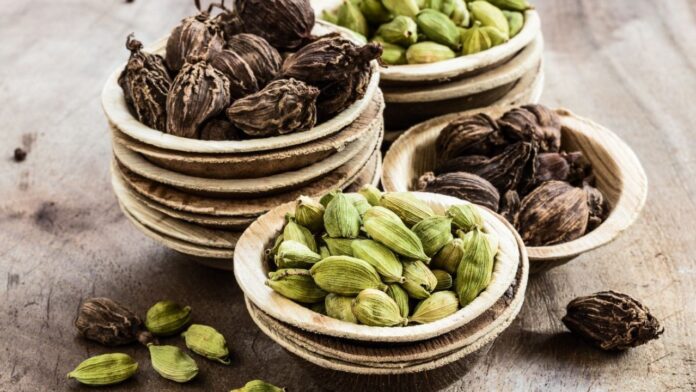Cardamom, known as the ‘queen of spices’, does more than just tantalize your taste buds. While spices are often associated with adding flavor to meals, cardamom goes beyond enhancing taste. Its rich nutritional profile, including vitamin C, magnesium, riboflavin, niacin, and potassium, makes it an excellent addition to your diet for boosting health. Its complex aroma and flavor make it a kitchen staple, and its nutritional benefits ensure it deserves a place in our regular diets.
- Rich in Antioxidants
Cardamom is packed with antioxidants, which help protect our bodies from damage caused by free radicals. This protection may help prevent various chronic ailments, such as hypertension.
- Offers Potent Anti-Inflammatory Benefits
Research indicates that the bioactive compounds in cardamom possess anti-inflammatory properties. This makes cardamom a natural remedy for combating inflammation-related issues.
- May Regulate Blood Pressure
Cardamom’s diuretic properties promote urination, helping to eliminate excess water from the body. This can potentially aid in regulating blood pressure, providing relief for those with hypertension.
- May Help in Fighting Cancer
Unique compounds found in cardamom have shown potential in counteracting cancer cells. Although these findings are still preliminary, they offer promising prospects for future therapeutic applications.
- May Prevent Chronic Illness
Cardamom’s anti-inflammatory properties suggest it might serve as a protective barrier against chronic illnesses associated with prolonged inflammation.
- May Enhance Digestion
Cardamom has long been celebrated for its digestive benefits. It can soothe an upset stomach and potentially aid in healing ulcers, making it a favored natural remedy for digestive issues.

 हिंदी
हिंदी






